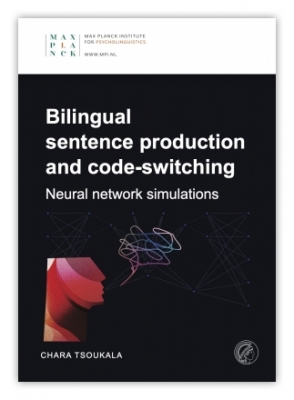Chara Tsoukala will defend her thesis on Wednesday 21st of April 2021

When multilingual speakers interact, they sometimes alternate between their languages in a single conversation context (for instance, in a single sentence). This is called code-switching, and it is done by many people who speak more than one language, not only by people who grew up in bilingual communities; it is an important aspect of human language.
In this thesis, Chara Tsoukala worked on a computational cognitive model of sentence production to simulate code-switching, with the goal to explore this phenomenon. She showed that Artificial Neural Networks are a useful and novel method to research bilingualism and code-switching. The computational model learned to code-switch without exposure to code-switched sentences, which indicates that part of code-switching (both in the model and among humans) occurs because of the (distribution of the) languages that are being used, and not only due to community-based influence.
Share this page